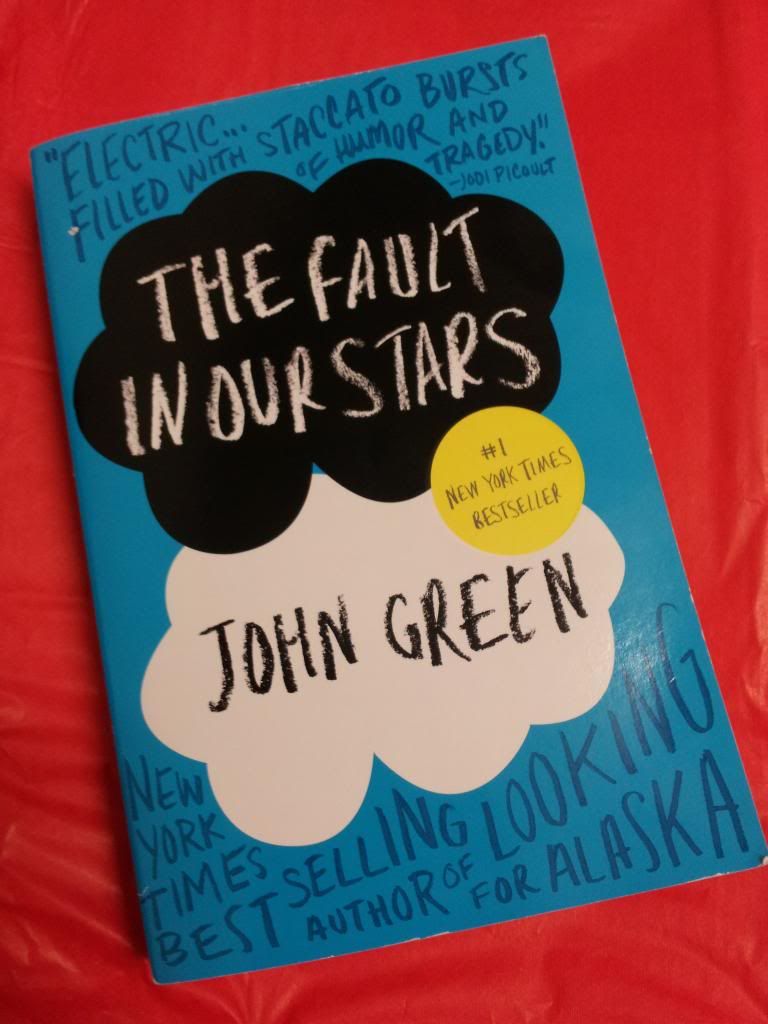My friend gave strong recommendations for a John Green novel, 'The Fault in our Stars', so I had been reading it during my recent flights to and from Sydney, and in my spare time since returning. I literally just finished reading it moments before starting to type this post.
An easy read with a total of 313 pages, you will find it in the 'teenage fiction' category of the bookshop (or online, like I did, from the Book Depository), although, I think the themes are relatable to people across all age groups, from all walks of life. In a nutshell, it's about a 16 yo girl with terminal metastasising thyroid cancer, whose life has been largely consumed by her illness, until she meets the boy of her dreams, who happens to be a one-legged osteosarcoma 'survivor'. It's one of those books where you know how it's going to inevitably end, and it basically just takes you on a journey through the last chapters of her life. The background theme is sad, heart-wrenchingly sad, but it is also spiked with humour throughout, mainly because the narrator, the main character of the book, gives witty and often humourous insights and observations. (A word of warning: reading this book in public places will make you look like you have bipolar disorder.)
Being written in first person from a teenager's point-of-view, the reader can expect the language of speech to be very informal and contain many phrases (too many for my liking) ending with "- or whatever", in typical teenage colloquial style. However, the author's good storytelling skills shine through in the structure of the text, from the well-paced unfolding of the plot, to the clever way in which he gradually and effectively paints out the physical and emotional sides of the characters in the reader's mind. He makes his characters seem more real and three-dimensional by revealing flaws in them, instead of creating cookie-cutter perfect heroes and heroines.
It is a bit unusual to see a work of fiction that tells of life as seen from a cancer patient's perspective, probably because it's difficult to come up with a satisfying ending, but this one is both interesting and thought-provoking, vaguely like a junior version of Mitch Albom's books. I am undecided about whether or not I like the ending to the story, but I feel that it succeeds anyhow in conveying the author's key messages. I am not sure if real-life cancer patients will derive much comfort from reading this book, but it will probably be appreciated by many others, by allowing them to have a glimpse into the (possible) complex world of those affected by cancer, or any chronic medical condition for that matter.
My rating: 7/10





No comments:
Post a Comment